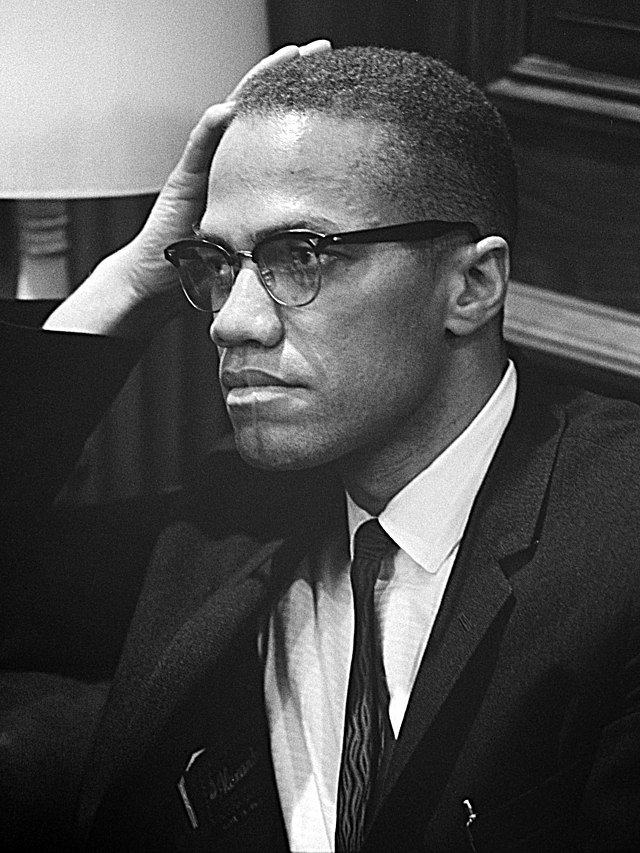
By
In a nation often bent towards forgetting, 85-year-old author A. Peter Bailey speaks proudly of his relationship with Malcolm X.
And on May 19, what would have been Malcolm X’s 98th birthday, Bailey says honoring the outspoken Muslim leader’s legacy isn’t merely an act of remembrance.
Instead, it is a clarion call to action and learning from Malcolm’s unwavering insistence on justice, equality, and freedom for Black people.
A native son of the South, Bailey’s a veteran who offered three years of his life to the U.S. Army, and subsequently nurtured his intellectual capacities at Howard University. Yet, like so many of his generation, Bailey found himself indifferent about Malcolm, and ensnared by the web of misconceptions about him.
“What I had heard was, you know, he was a big believer in violence, and he hated white folks, and that kind of thing,” Bailey explains.
However, a fateful summer day in 1962 offered Bailey an unexpected revelation about Brother Malcolm.
He shared so much knowledge that by the time he finished speaking, nearly three-and-a-half hours later, I had already become a supporter. A. PETER BAILEY
Bailey says he traveled to New York City in search of an internship and found an apartment in Harlem. He moved in on a Friday. The following day, he needed a break from unpacking, so he and a friend decided to stroll down Lenox Avenue — now Malcolm X Boulevard — and explore.
As they continued down Lenox Avenue, Bailey says they saw a crowd gathering. Someone told them that Malcolm X would be speaking outside of Mosque #7, at 116th Street and Lennox. So they decided to go and hear what he had to say.
“I had never heard someone speak with such precision, clarity, and thoughtfulness,” Bailey says. “He shared so much knowledge that by the time he finished speaking, nearly three-and-a-half hours later, I had already become a supporter.”
Bailey’s admiration for Malcolm X grew so strong that when Malcolm left the Nation of Islam, Bailey became a founding member of the Organization of Afro-American Unity, a Black nationalist organization launched by Malcolm himself in 1964. Bailey also served as editor of the OAAU’s newsletter, the “Blacklash.”
When Malcolm X was assassinated on February 21, 1965, while giving a speech at the Audobon Ballroom in Manhattan, Bailey was there. He also served as a pallbearer at Malcolm X’s funeral.
Since Malcolm X’s death, Bailey has referred to May 19 as a “day of celebration.”
“We don’t talk about Malcolm’s death on May 19,” Bailey says. “Instead, we need to concentrate on Malcolm X’s teachings.”
Bailey’s assertion that Malcolm’s teachings should be the focal point of his commemoration resonates with timely urgency. In a recent op-ed Bailey wrote for The Washington Informer, he stressed that celebrations honoring the births of Malcolm X and Dr. Martin Luther King are important.
We don’t talk about Malcolm’s death on May 19. Instead, we need to concentrate on Malcolm X’s teachings.
A. PETER BAILEY
But “equally important,” he says, “is the need for us to learn from and act on the profound, productive, and inspiring guidelines the Brothers left us on how to promote and protect our health, economic, political, educational, technological, and communications interests in a country where overt white supremacy has once again become openly hostile.”
Indeed, Bailey believes that if Malcolm were alive today, he would admonish Black institutions — including churches, sororities and fraternities, social and professional organizations, and the Black Press — to establish schools to teach Black history.
Brother Malcolm would remind us that it is our responsibility to teach our own history all across this country.
A. PETER BAILEY
“Brother Malcolm would remind us that it is our responsibility to teach our own history all across this country,” Bailey says.
And he’s put that into practice by refusing to let the truth about Malcolm X be brushed aside. In 1998, he co-wrote the book “Seventh Child: A Family Memoir of Malcolm X” with Malcolm’s nephew, Rodnell Collins.
Fifteen years later, in 2013, he penned “Witnessing Brother Malcolm X: The Master Teacher,” a memoir about the man he never befriended but who influenced his beliefs in Pan-Africanism and Black unity.
And, this year, Bailey will be releasing his third book, “Brother Malcolm X’s Visionary, Strategic Pan Africanism: Why It Enraged the U.S. Government,” and hosting a book talk in Washington, D.C., where he now lives.
So in honor of Malcolm X’s birthday, Bailey encourages people to learn as much as they can about Malcolm X.
Learn his life story and about his relationships with other leaders — including Dr. King.
Learn the meaning behind his pronouncement that Black people want justice, equality, and freedom “by any means necessary,” and learn the solutions he espoused to achieve Black unity in the U.S. and abroad.
“On his birthday, we will celebrate Brother Malcolm,” Bailey says.


